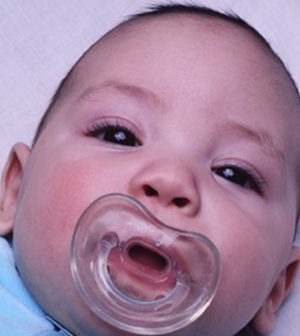- Could Your Grocery Store Meat Be Causing Recurring UTIs?
- Are You Making This Expensive Thermostat Error This Winter?
- Recognizing the Signs of Hypothyroidism
- 10 Strategies to Overcome Insomnia
- Could Artificial Sweeteners Be Aging the Brain Faster?
- Techniques for Soothing Your Nervous System
- Does the Water in Your House Smell Funny? Here’s Why
- Can a Daily Dose of Apple Cider Vinegar Actually Aid Weight Loss?
- 6 Health Beverages That Can Actually Spike Your Blood Sugar
- Treatment Options for Social Anxiety Disorder
Pandemic Silver Lining: Drop in Infections That Cause Birth Defects

The number of babies born with a virus that commonly causes birth defects may have dropped significantly during the COVID-19 pandemic, new research suggests.
That was true in Minnesota, the first state to start screening all newborns for congenital cytomegalovirus (CMV).
In the five years leading up to the pandemic, about 1 in every 200 babies was born with CMV. That dropped to 1 in every 1,000 between August 2020 and December 2021, the new study found.
“At last, something positive came out of the COVID-19 pandemic,” said principal investigator Dr. Mark Schleiss. He’s a pediatric infectious disease specialist and professor at the University of Minnesota Medical School.
“The hygienic precautions we all have engaged in during the pandemic — masking, hand-washing and infection prevention behaviors — were almost certainly responsible for the reduction in CMV transmission, which in turn protected mothers and newborns from the potentially devastating effects of the CMV virus,” Schleiss said in a school news release.
Researchers also attributed the reduction to stay-at-home initiatives and the closing of group child care centers during those months.
CMV is spread through close contact with body fluids. While most people don’t even know they’re infected, the virus can be serious in babies and people with weakened immune systems.
The study noted that women with toddlers in group day care are at risk for getting CMV from their child. If a woman gets the virus while pregnant, her baby may be born with the infection and be at risk for developing disabilities, especially hearing loss.
Researchers said public awareness campaigns are needed to increase knowledge and awareness of CMV.
Schleiss was part of a campaign that led to enactment last year of the Vivian Act, which made Minnesota the first state to start universal screening for congenital cytomegalovirus in all newborn infants.
The findings were recently published in JAMA Network Open.
More information
The U.S. Centers for Disease Control and Prevention has more on cytomegalovirus.
SOURCE: University of Minnesota Medical School, news release, Sept. 6, 2022
Source: HealthDay
Copyright © 2026 HealthDay. All rights reserved.










